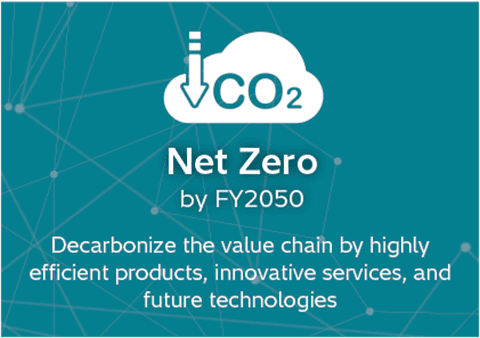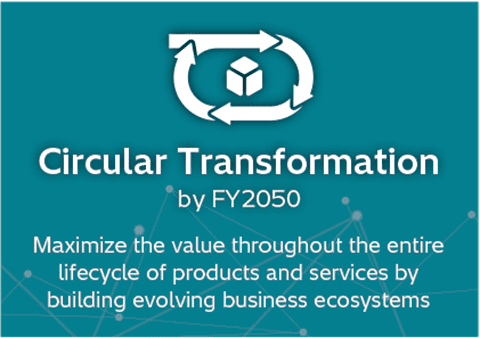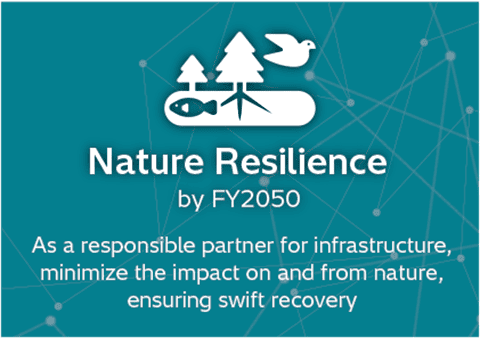Environment Vision
Environmental Vision and Long-term Environmental Targets
Hitachi has developed its Environmental Vision and long-term environmental targets, “Hitachi Environmental Innovation 2050”, which outline the company’s direction and ambitions in addressing global environmental challenges toward FY 2050.
In May 2025, reflecting the growing urgency of climate and nature-related issues, shifting societal awareness, and evolving business models, Hitachi updated the vison and targets.

Hitachi aims to become a global leader in green transformation through its Social Innovation Business to help protect our Planet and achieve well-being for People
Decarbonization
Circular Economy
Nature Positive

Hitachi Environmental Innovation 2050
Pursue dual missions of “GX for CORE” and “GX for GROWTH” to achieve our environmental targets using data and innovative technology

Carbon neutrality
by FY2030*¹
52% GHG emission reduction
in the value chain by FY2030*²

Zero landfill waste
by FY2030*³*⁴
Eco-design*⁵
for all relevant product groups
by FY2030

10% water usage reduction
by FY2030*⁶
Impact assessment
on and from nature
in the value chain by FY2030*⁷

Set environmental action items and targets every three years in order to achieve the long-term targets
*1: at factories and offices through reducing emissions and offsetting residual emissions compared to FY2019, *2: gross profit-based intensity value compared to FY2022, *3: defined as a final disposal rate (landfill disposal/waste and valuables) of less than 0.5% in any given fiscal year in the Hitachi Group. Pursued in assumed conformance with regulations, conditions, etc., *4: at manufacturing sites, *5: application of environmentally conscious design in the design of products, or implementation of environmental impact assessments for product groups., *6: intensity value compared to FY2019, *7: for major products and projects; in addition to compliance with necessary regulations





